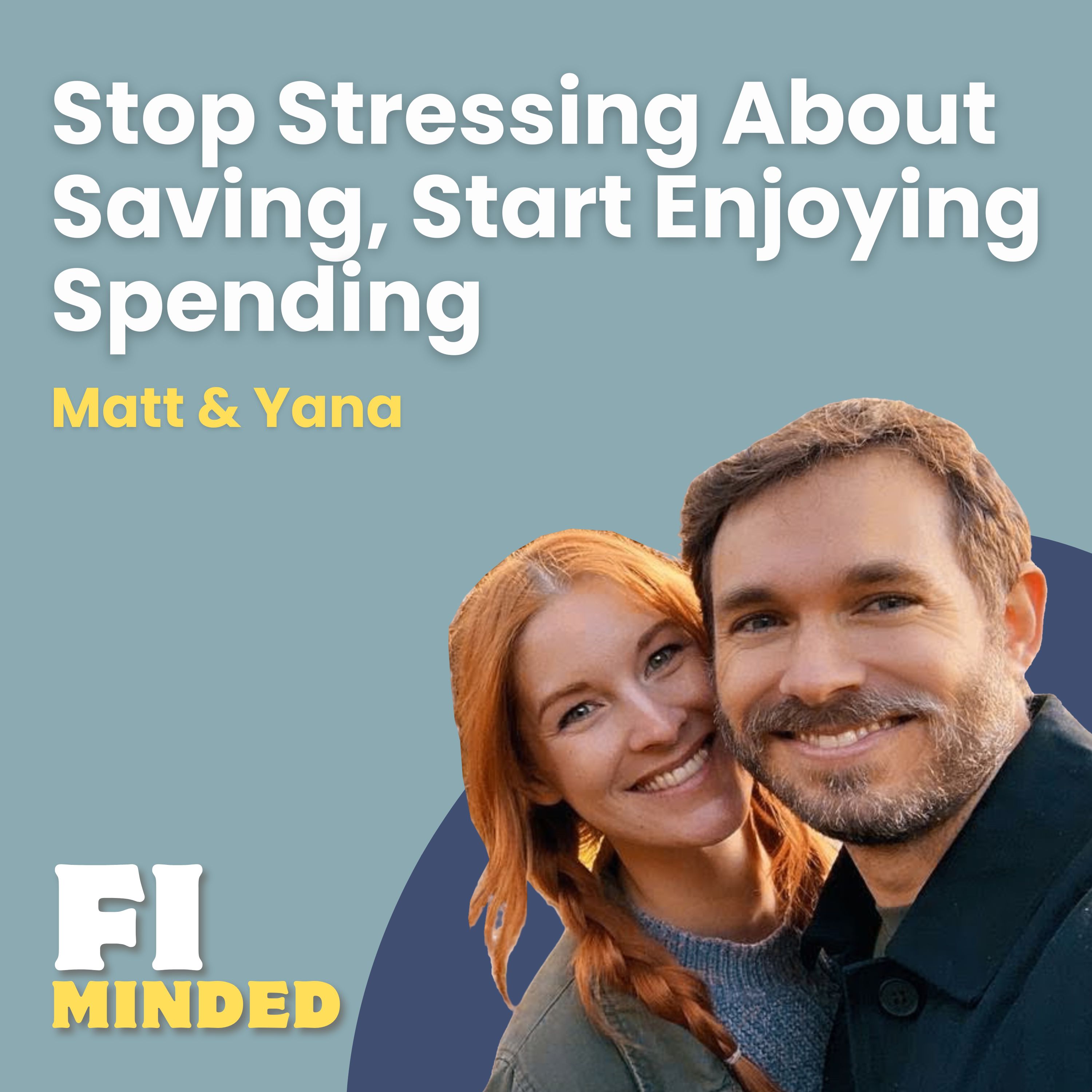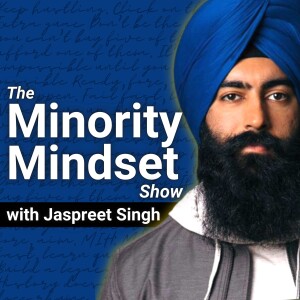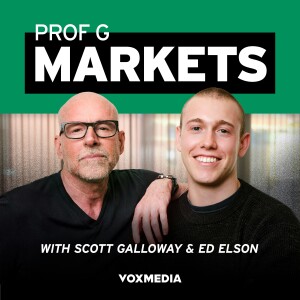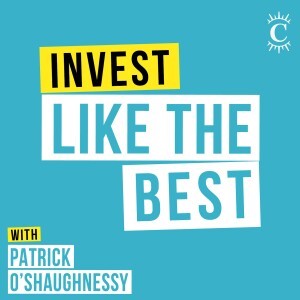

FI Minded: Achieve Financial Independence & Have Fun Doing It
https://feeds.captivate.fm/fiminded/Episode List

Shifting Away from a “Save-Only” Mindset | E175 Matt & Yana - CoastFI Couple
Today, we dive into some of the biggest questions our community has about money, relationships, and raising kids on the path to financial independence.Matt and Yana from CoastFI Couple share their honest experience with shifting from a strict save-only mindset to learning how to enjoy their money after reaching Coast FI.We talk about how even couples who agree on big-picture goals can still face daily money disagreements — and the tools and conversations that help keep things on track.Plus, we explore how to teach kids healthy money values without passing on anxiety or scarcity.Whether you’re struggling to spend guilt-free or want to raise money-smart kids, this episode offers practical insights and encouragement.If you have a question you'd like me to answer on a future episode, just shoot me an email at justin@fiminded.com.Key Takeaways:It’s totally normal to struggle with spending after years of saving.Start with small upgrades to ease into enjoying your money.You and your partner can be aligned overall and still clash on daily spending.Using tools and talking openly can help you avoid constant money arguments.You can teach your kids to be smart with money without making them anxious.Modeling a balanced approach helps your kids build confidence around money.More of Matt & Yana:YouTube: https://www.youtube.com/@CoastFICoupleQube Money: https://qubemoney.com/ (Use code COAST for a free trial)More of FI Minded:Connect with Justin on LinkedIn: https://www.linkedin.com/in/justinleepeters/

How to Get the Courage to Travel More Adventurously | E174 Jon Otero
My first big trip abroad was in 2015. I had just graduated from college the week before and wanted to do something fun. So my girlfriend and I flew to Europe and visited Prague, Paris, and Barcelona. It was a blast, and it left a lasting impression. Since then, I’ve traveled to 10 more countries.Lately, I’ve been getting more comfortable with international travel, and I’m starting to feel the itch to push beyond my comfort zone. Up to this point, most of my trips have been to first-world countries, major metropolitan cities, and usually with a group of friends or my partner.But I’ll be honest, I’m a little nervous to push the boundary. That’s why I invited Jon Otero on the podcast to help me break through those fears and build the confidence to travel more adventurously.Jon is the definition of an adventurous traveler. He has visited 35 countries and all 50 U.S. states, and he has done some incredible things, such as riding a camel in Egypt, scuba diving to sunken ships, and paratriking in Peru. His fearless approach to travel is seriously so inspiring, and I’m hoping to tap into a little of that mindset myself.In this episode, we talk about everything from navigating language barriers and understanding cultural differences to safety tips, solo travel, and ideas for your next adventure.Before we jump in, I want to say this: adventurous travel is defined by you. If you’ve never left the country before, going anywhere new might feel like a big leap, and that’s awesome. Even exploring a new part of the U.S. can feel adventurous if you’ve never been out of your home state. Don’t let social media or someone else’s definition shape what a great trip looks like. Go at your own pace, and most importantly, have fun.Let’s get into it. I hope you enjoy my conversation with the adventurous traveler and host of The Globetrotters Podcast…Jon Otero.Key Takeaways:How to navigate language barriers when you don’t speak the local languageTips for learning cultural customs before your tripStaying aware without being overly paranoid while travelingMaking solo travel fun (and not lonely)How to pick your next travel destinationUnderrated countries that deserve a spot on your listMore of Jon:Listen to the Globetrotters Podcast: https://www.gtspodcast.com/More of FI Minded:Email Justin at Justin@FIMinded.comConnect with Justin on LinkedIn: https://www.linkedin.com/in/justinleepeters/

Money Moves That Sound Smart…But Aren’t (Part 2) | E173
Some money moves sound smart…until you actually try them.This is Part 2 of our special series where six personal finance experts share strategies that sound smart but rarely are. In this episode, you’ll hear from:Larry McMahon (Uncontrollable Me) on why doing everything yourself can be a costly mistakeSean Mullaney (FI Tax Guy) on when Traditional 401(k) contributions might not be the best choiceJeremy Schneider (Personal Finance Club) on why whole life insurance is rarely the financial win it's pitched to beMissed Part 1? No problem - each episode stands alone, but you’ll want to go back and queue it up next.Key Takeaways:DIY-ing everything can limit your growth and lead to costly errorsTraditional 401(k) contributions aren’t always the most tax-efficient routeWhole life insurance rarely lives up to the hypeEven experienced money nerds make mistakes—and learn from themMore of Our Guests:Check out Larry’s coaching practice at https://www.uncontrollable.me/.Watch Sean’s YouTube channel at https://www.youtube.com/@SeanMullaneyVideos.Follow Jeremy’s Instagram account at More of FI Minded:Email Justin at Justin@FIMinded.comConnect with Justin on LinkedIn: https://www.linkedin.com/in/justinleepeters/DisclaimerThe content shared by Sean Mullaney in this episode is for informational purposes only and should not be considered tax advice for any specific individual. Neither this podcast nor its host endorses Sean Mullaney, Mullaney Financial & Tax, Inc., or any of the services they offer.

Money Moves That Sound Smart…But Aren’t (Part 1) | E172
Some financial strategies sound really smart…until they aren’t.In part one of this special two-part series, we’re diving into real stories from personal finance pros who once made money moves that seemed like great ideas... but turned out to be anything but.You’ll hear honest reflections from:Diana Merriam (EconoMe) on the allure, and pitfalls, of credit card churningJesse Cramer (Personal Finance for Long-Term Investors) on rethinking Roth conversionsJoel Larsgaard (How to Money) on why 529 plans aren’t always the no-brainer they seemI’ll also share my own story of trusting the wrong financial “expert” and how it led me to open a whole life insurance policy I didn’t need.We’ve all made money moves we later questioned. This episode is here to help you learn from them and avoid making the same ones.Key Takeaways:Whole life insurance isn’t the wealth builder it’s often sold as.Credit card churning can be more trouble than it’s worth.Roth conversions aren’t always a smart tax move.529 plans can limit financial flexibility.Even smart-sounding strategies deserve a second look.Mistakes are part of the journey - learn and keep going.More of Our Guests:Check out Diana’s EconoMe Conference at https://economeconference.com/Listen to Jesse’s podcast Personal Finance for Long-Term Investors at https://bestinterest.blog/personal-finance-for-long-term-investors/Listen to Matt’s podcast How to Money at https://www.howtomoney.com/More of FI Minded:Email Justin at Justin@FIMinded.comConnect with Justin on LinkedIn: https://www.linkedin.com/in/justinleepeters/

You’re Great at Saving. Are You Good at Giving? If not, start here. | E171 Spencer Reese
We’re great savers. Probably good earners, too. But what about givers?The FI community excels at building wealth, but often, we’re laser-focused on accumulating it for ourselves. Is that fair? Does that make us selfish?I’m not sure. On one hand, taking care of yourself should be step one - like the old adage goes: “Put on your own oxygen mask before helping others.” And I think there is a lot of validity to that.But here’s the thing: we’re not on a crashing plane. We have time to reach FI and help others along the way.That said, it’s not always easy. Many of us in this community struggle to spend money on ourselves, let alone give it away. But generosity isn’t just an act of kindness. It’s also a powerful way to let go of a scarcity mindset and embrace abundance.When it comes to the question of when to give, I could make both a mathematical and emotional case for giving now or later. But with the level of wealth you're likely to build over your lifetime, I can almost guarantee giving will become part of your journey at some point.Whether you decide to start giving during your FI journey or wait until you’ve reached your goals, one thing’s for sure: if you’re part of the FI community, you’re going to want to figure out how to give in the most optimal way.My friend Spencer Reese from Military Money Manual has been figuring out how to do just that. In today’s episode, Spencer and I dive into how charitable giving can reduce your taxes, what a Donor-Advised Fund is (and why you might use one), and how to find nonprofits that align with the causes you care most about and are making the biggest impact with the money given to them.Key Takeaways:How to get more comfortable donating your moneyWays to balance your FI goals while supporting causes you care aboutHow charitable tax deductions actually workWhat a Donor-Advised Fund (DAF) is and why it might be right for youThe easiest DAF platform for first-time donorsWhy donating appreciated stock can be a powerful giving strategyHow to find ethical, effective nonprofits to supportTips for deciding how much to give (and when)Whether it’s better to donate now or wait until you’ve reached FIMore of Spencer:Check out Military Money Manual Podcast: https://militarymoneymanual.com/podcast/More of FI Minded:Email Justin at Justin@FIMinded.comConnect with Justin on LinkedIn: https://www.linkedin.com/in/justinleepeters/
Create Your Podcast In Minutes
- Full-featured podcast site
- Unlimited storage and bandwidth
- Comprehensive podcast stats
- Distribute to Apple Podcasts, Spotify, and more
- Make money with your podcast












